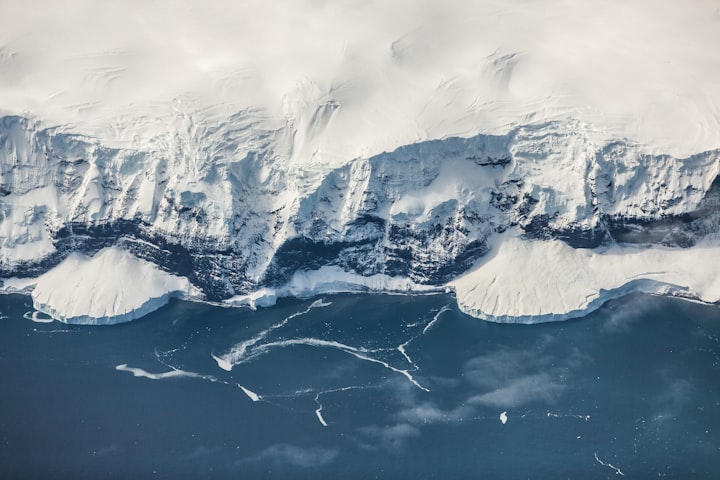Who Owns Antarctica..?
Antarctica is one of the rare places where there is no human influence. It has a very unique mix of flora and fauna. But if Antarctica doesn't have any human influence, who owns it? And if no one country owns it, then are we wasting the potential of Antarctica in the name of geopolitics? Read this article to find out explains to you the geopolitics of Antarctica.

This article provides an overview of Antarctica, discussing its unique characteristics, history of exploration, and geopolitical situation. It highlights the Antarctic Treaty and its impact on scientific research and geopolitical dynamics in the region. The article also mentions the Madrid Protocol and the potential for oil mining in the future.Antarctica is a unique continent that is governed by an international treaty system rather than a single owner. It is frequently referred to as the world's last great wilderness. The 1959 Antarctic Treaty, which has been in force since 1961, forbids military operations and designates Antarctica as a scientific preserve, elevating it to the status of a symbol of international collaboration. Over 50 nations, including significant powers, have ratified the treaty, which currently has 54 signatories. By guaranteeing that Antarctica belongs to all people, this agreement encourages scholarly inquiry, environmental preservation, and the peaceful exploration of this pristine continent. It demonstrates how important it is for everyone to contribute to protecting the wildest, unspoiled areas of our planet.
It concludes by posing questions about the future of Antarctica and whether its current collaborative and restricted status should be maintained or if further exploration and exploitation should occur.
Highlighting its unique characteristics and the history of exploration and territorial claims. Key details include,
Antarctica is the only continent without a government or indigenous population. It is the coldest continent, with temperatures as low as -89°C, and the windiest place on Earth, with snowstorms reaching speeds of 300 km/hr. Antarctica is the driest continent and is considered a desert, receiving only around 51mm of rain annually.
Various countries, including France, Norway, Australia, Britain, Chile, Argentina, and New Zealand, have made territorial claims on Antarctica. The first recorded landing on Antarctica was in 1895 by a Norwegian expedition. The early 1900s saw the "Heroic years" of Antarctica, with numerous expeditions and scientific discoveries.
After World War II, countries established permanent research stations in Antarctica as a strategy to strengthen their territorial claims. The Antarctic Treaty was signed in 1959, promoting peaceful use and scientific investigation of Antarctica. The treaty temporarily suspended territorial claims but did not abolish them. Australia has the largest claim on Antarctica, but not all countries recognize each other's claims.
Overall, this section provides an overview of Antarctica's geography, exploration history, and the geopolitical situation regarding territorial claims.
Antarctic geopolitics and research.
The Antarctic Treaty and its impact on the geopolitics and scientific research in Antarctica. The Treaty, which temporarily suspended territorial claims, will expire in 2048. Currently, there is little geopolitics in Antarctica due to the focus on scientific research. The International Council of Scientific Unions coordinates research among scientists from different countries, with approximately 4,500 scientists visiting Antarctica each year. India, initially against the Antarctic Treaty, later signed it and now has two active research stations in Antarctica. Furthermore, an Environmental Protection Treaty, known as the Madrid Protocol, was signed in 1991, placing restrictions on drilling and mining activities in Antarctica. The potential for oil mining in Antarctica exists, but is currently limited by the Madrid Protocol and the high costs involved. However, climate change may increase the accessibility and viability of extracting oil and gas in the future. Countries have also expressed concerns about fishing in the ocean near Antarctica and call for new regulations to prevent overfishing and illegal activities. Antarctica currently functions as a collaborative political territory without a police force, army, or legal system. Loopholes in the Treaty, such as tourist passport stamping, can be seen as expressions of countries' claims. The document ends by asking the reader to consider the future of Antarctica and whether the current situation of collaboration and restrictions should be maintained or if there should be further exploration and exploitation of the continent.
About the Creator
bimla topno
I am excited to share my work with the world and to connect with other writers and readers.






Comments
There are no comments for this story
Be the first to respond and start the conversation.